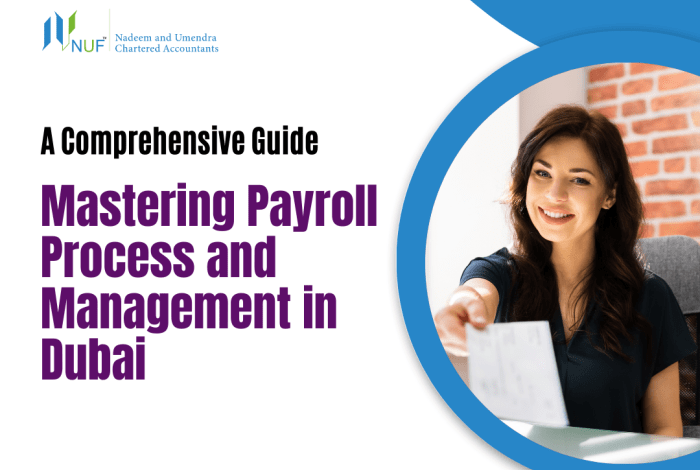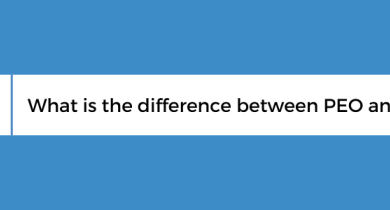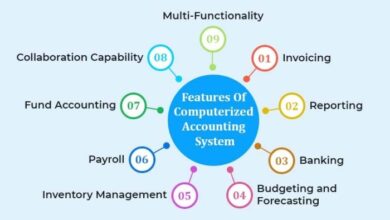
Advancing your career through proficiency in payroll management is a smart move in today’s job market. Payroll expertise isn’t just about crunching numbers; it’s about understanding complex financial processes and ensuring smooth operations. This detailed guide explores the importance of payroll management skills, the essential skills needed for success, and how to leverage them for career advancement. We’ll delve into real-world applications and case studies, offering practical strategies for building a strong foundation in payroll and propelling your career forward.
From mastering data entry and calculations to understanding various payroll software and handling discrepancies, this guide equips you with the knowledge and skills to excel in the field. We’ll cover everything from building expertise to continuous professional development, providing insights into how payroll management skills can lead to promotions and career advancement. This comprehensive resource will illuminate various career paths that benefit from this valuable skillset, showcasing the tangible impact of payroll proficiency on your professional trajectory.
Essential Skills for Payroll Proficiency

Payroll management is a critical function in any organization, demanding accuracy, attention to detail, and a solid understanding of both technical and soft skills. Proficiency in this area directly impacts employee satisfaction and financial stability. Mastering these skills is crucial for career advancement in the field.Effective payroll management requires a strong foundation in technical skills, coupled with the ability to navigate interpersonal situations and resolve potential issues.
This comprehensive approach ensures smooth operations and maintains a positive employer-employee relationship.
Technical Skills for Payroll Success
Payroll processing involves a series of crucial technical steps. These steps necessitate a high degree of accuracy and attention to detail. Data entry, calculation, and reconciliation are fundamental components.
- Data Entry: Accurate and timely data entry is paramount. Errors in entering employee information, hours worked, deductions, or other relevant data can lead to significant discrepancies and financial issues. Thoroughness and a keen eye for detail are essential to prevent errors.
- Calculation: Payroll calculations encompass various components like gross pay, taxes, deductions, and net pay. Payroll professionals must demonstrate a strong understanding of relevant formulas and calculations. This involves mastering different pay structures, overtime rules, and complex tax regulations. Knowledge of different payment methods and currencies is also beneficial.
- Reconciliation: Reconciling payroll data with other systems, such as timekeeping and general ledger, is essential to ensure accuracy and identify discrepancies. This process involves comparing figures, verifying calculations, and resolving any inconsistencies. A meticulous approach is necessary for accurate reconciliation.
Soft Skills for Payroll Excellence
Beyond technical skills, soft skills play a vital role in payroll management. These skills foster positive relationships, build trust, and resolve conflicts.
- Accuracy and Attention to Detail: Payroll involves numerous calculations and data points. Even a small error can have significant consequences. A meticulous approach and unwavering attention to detail are critical to accuracy. This means double-checking data, validating calculations, and adhering to strict procedures.
- Problem-Solving: Payroll professionals frequently encounter discrepancies and errors. The ability to identify, analyze, and resolve these issues is crucial. This includes understanding the root cause of the problem and implementing appropriate solutions.
- Communication: Clear and effective communication with employees, supervisors, and other stakeholders is vital. This includes explaining payroll policies, addressing concerns, and providing timely information.
Common Payroll Software Applications
Payroll software has significantly streamlined the process. These applications automate many tasks and reduce the risk of errors.
- ADP Payroll: A widely used solution offering comprehensive payroll processing, reporting, and compliance features.
- Paychex: A robust payroll system with features for timekeeping, benefits administration, and compliance reporting.
- QuickBooks Payroll: A popular choice for small and medium-sized businesses, offering integrated accounting features.
Comparing Payroll Systems
Different payroll systems offer varying features and benefits. The best choice depends on the specific needs of the organization.
Boosting your career in finance often hinges on mastering specific skills, and payroll management is a crucial one. Knowing how to handle payroll accurately and efficiently can open doors to promotions and new opportunities. While pondering the future of technology, it’s interesting to consider how the iPad’s success might be influenced by Apple’s closed ecosystem, as discussed in this insightful article will the ipad thrive in apples closed ecosystem.
Ultimately, focusing on payroll proficiency will still be a key factor in your career advancement journey.
| Payroll System | Benefits | Drawbacks |
|---|---|---|
| ADP Payroll | Extensive features, robust reporting, strong compliance support. | Can be more expensive than other options, complex setup process. |
| Paychex | User-friendly interface, comprehensive benefits administration features. | May have limited customization options compared to some others. |
| QuickBooks Payroll | Integrated with accounting software, easy to use for smaller businesses. | Features might be less extensive compared to larger systems. |
Handling Payroll Discrepancies and Errors
Payroll discrepancies and errors can arise due to various reasons, from data entry mistakes to system malfunctions. A systematic approach to resolving these issues is crucial.
- Identify the Error: Carefully review all payroll data to pinpoint the source of the discrepancy. This often involves comparing various sources and verifying calculations.
- Investigate the Cause: Once the error is identified, investigate the underlying cause. This may involve checking employee records, reviewing timekeeping data, or examining system settings.
- Implement a Solution: Develop and implement a solution to correct the error. This might involve adjusting calculations, updating records, or implementing preventive measures to avoid similar errors in the future.
Building a Payroll Management Expertise
Mastering payroll management is more than just crunching numbers; it’s about understanding the intricate processes and the people behind them. A strong foundation in payroll proficiency allows you to navigate complexities, identify potential issues, and ultimately contribute to a more efficient and compliant operation. This expertise is highly valued in today’s business landscape, opening doors to advancement and leadership opportunities.A well-rounded understanding of payroll management involves a deep knowledge of labor laws, tax regulations, and company policies.
It extends beyond basic calculations to encompass the entire spectrum of payroll operations, from data entry and processing to reporting and compliance. This comprehensive approach fosters accuracy, minimizes errors, and builds trust within the organization.
Building a Payroll Knowledge Base
A structured approach to acquiring payroll knowledge is crucial for developing expertise. Start with the fundamentals, understanding the various types of payrolls, different compensation structures, and relevant regulations. This foundation will enable you to grasp more complex aspects effectively. Continuously update your knowledge through industry resources and professional development opportunities.
Developing Payroll Skills
To develop essential payroll skills, practice consistently. Start with simple tasks and gradually increase the complexity as you gain confidence. Seek opportunities to work with larger datasets and more intricate payroll scenarios. Hands-on experience is invaluable, providing practical insights into the nuances of payroll management. Diligence and attention to detail are critical.
Want to level up your career? Proficiency in payroll management is a seriously valuable skill. It’s not just about crunching numbers; it’s about understanding the intricacies of compensation, ensuring compliance, and ultimately, optimizing employee satisfaction. Check out how remote leaders helpscout anjuan simmons navigated their career path, highlighting the importance of such skills in today’s remote work environment.
Ultimately, a strong foundation in payroll management can be a real game-changer for your career advancement.
Utilizing Resources for Enhancement
Several resources can significantly enhance your payroll expertise. Online courses and certifications offered by reputable institutions provide structured learning and valuable credentials. These programs often cover best practices, compliance updates, and advanced techniques. Online platforms dedicated to payroll management provide a wealth of information, tutorials, and templates. Explore these platforms to expand your knowledge and refine your skills.
Boosting your career through payroll mastery isn’t just about crunching numbers; it’s about understanding the entire process. Knowing how to set clear expectations with your team, like outlined in this helpful guide on how to set expectations with your team , is key to effective collaboration and ultimately, a smoother, more successful payroll operation. This expertise will then position you as a valuable asset, paving the way for career advancement.
Real-World Applications of Payroll Management Skills
Payroll management skills are essential across various business sectors. In a retail environment, accurate payroll calculations ensure timely payments, minimizing delays and potential legal issues. A manufacturing company benefits from precise payroll management to avoid errors in calculating overtime pay, which is crucial for compliance and employee satisfaction. A healthcare facility must precisely track employee hours and benefits, which directly impacts financial reporting and regulatory compliance.
The ability to accurately and consistently manage payroll across diverse industries directly impacts a company’s bottom line.
Strategies for Continuous Professional Development
Continuous professional development is vital in the ever-evolving world of payroll management. Staying updated on changes in labor laws and tax regulations is critical. Attending industry conferences and workshops provides opportunities to network with peers and learn about emerging trends. Actively seeking out new payroll software and tools keeps your skills relevant and efficient.
The Benefits of Mentorship
Seeking guidance from experienced payroll professionals offers significant advantages. Mentors can provide valuable insights into best practices, share industry knowledge, and offer support during challenging situations. They can help you navigate complex issues and refine your decision-making skills. A mentor’s experience can be invaluable in shaping your career trajectory.
Career Advancement Through Payroll Management

Payroll management, often perceived as a behind-the-scenes function, is a crucial component of any organization. Proficiency in this area can open doors to significant career advancement opportunities. A strong understanding of payroll processes, regulations, and technology allows professionals to contribute significantly to the smooth functioning of a company, often exceeding expectations and demonstrating valuable skills beyond basic transaction processing.Payroll management expertise goes beyond simply calculating salaries and deductions.
It encompasses a deep understanding of employment law, tax regulations, and company policies, all of which are essential for ensuring accuracy and compliance. This knowledge, coupled with meticulous attention to detail and problem-solving abilities, can quickly position individuals for more challenging and rewarding roles.
Payroll Management as a Stepping Stone to Promotions
Payroll management skills are highly valued by employers. Demonstrated proficiency in this area can significantly enhance an individual’s career trajectory, leading to promotions and increased responsibilities. Payroll managers often possess a strong grasp of financial procedures, compliance regulations, and problem-solving techniques, skills highly sought after in various managerial roles.
Career Paths Benefiting from Payroll Management Skills
Payroll management skills are valuable assets in diverse career paths. These skills are not confined to a single role; they are transferable across many areas.
- Payroll Specialist to Senior Payroll Analyst: Progression in this path often involves taking on more complex tasks, including handling audits, implementing new payroll systems, and managing larger teams. This demonstrates a growing expertise and increasing responsibility, which often leads to higher compensation and recognition.
- Payroll Analyst to Human Resources Generalist: Payroll analysts with a strong understanding of employee data and company policies can easily transition into HR generalist roles. This transition leverages their expertise in compliance, employee records, and company regulations. Knowledge of labor laws and employee relations becomes particularly relevant.
- Payroll Manager to Finance Manager: A skilled payroll manager with a good understanding of financial processes and reporting can transition to a finance manager position. The deep understanding of financial transactions, budgeting, and compliance developed through payroll management provides a solid foundation for this career path.
Examples of Payroll Professionals Achieving Career Growth
Several professionals have successfully leveraged their payroll expertise for career growth.
- A payroll specialist with strong analytical skills and attention to detail, recognized for consistent accuracy and efficiency, was promoted to a senior payroll analyst role within two years. The promotion reflected her ability to handle increasingly complex tasks and manage a growing workload. This demonstrates how a combination of skills and dedication can lead to rapid career advancement.
- An experienced payroll manager, known for implementing innovative payroll software solutions, was appointed as a Finance Manager due to their ability to integrate payroll processes with the overall financial strategy of the company. This example highlights the value of technical proficiency and strategic thinking in advancing one’s career.
Importance of Networking in the Payroll Field
Networking with other payroll professionals is crucial for career advancement. Networking allows individuals to stay updated on industry trends, best practices, and new technologies. It also opens doors to potential job opportunities and mentorship opportunities.
Comparing Payroll Knowledge Across Career Levels
The following table illustrates the varying levels of payroll knowledge required at different career stages:
| Career Level | Required Payroll Knowledge |
|---|---|
| Payroll Specialist | Basic understanding of payroll processes, calculations, and compliance. |
| Payroll Analyst | In-depth knowledge of payroll processes, calculations, compliance, and reporting. |
| Payroll Manager | Comprehensive knowledge of payroll processes, calculations, compliance, reporting, and system administration. |
| Finance Manager | Strong knowledge of payroll processes, calculations, compliance, reporting, system administration, and financial procedures. |
Strategies for Enhancing Payroll Management Skills: Advancing Your Career Through Proficiency In Payroll Management
Mastering payroll management is crucial for any organization. Accuracy, efficiency, and compliance are paramount to avoid costly errors and maintain a positive employer-employee relationship. This requires a multifaceted approach, encompassing procedural optimization, technological integration, and a strong understanding of legal and compliance requirements. This section explores strategies to elevate payroll management skills, empowering professionals to handle complex tasks with precision and efficiency.Effective payroll management extends beyond simply calculating wages.
It involves meticulous record-keeping, adherence to regulations, and proactive problem-solving. The strategies detailed below are designed to streamline processes, reduce errors, and ensure a smooth payroll experience for everyone involved.
Techniques for Enhancing Accuracy and Efficiency in Payroll Processing
Payroll accuracy and efficiency are critical for maintaining a positive work environment and avoiding legal issues. Implementing meticulous checks and balances during each step of the process is vital. This includes double-checking calculations, cross-referencing data from various sources, and utilizing automated tools whenever possible.
Strategies for Optimizing Payroll Workflows, Advancing your career through proficiency in payroll management
Streamlining payroll workflows is key to minimizing processing time and errors. Efficient workflows reduce the risk of delays, maintain data integrity, and free up resources for other tasks.
- Establishing clear procedures: Detailed step-by-step instructions, documented for every aspect of the process, ensure consistent execution. This minimizes ambiguity and fosters a clear understanding of responsibilities for all parties involved.
- Implementing automated processes: Automating tasks like data entry and calculation reduces manual errors and saves significant time. Software solutions can handle complex calculations and data validations, drastically increasing accuracy and efficiency.
- Utilizing technology for data validation: Implementing data validation rules within the payroll system helps catch potential errors early on, such as incorrect employee information or invalid deduction amounts. Real-time validation significantly improves the quality of payroll data.
- Regularly reviewing and updating processes: Payroll practices evolve with changing laws and industry best practices. Regularly reviewing and updating processes ensures compliance and optimizes efficiency. This proactive approach prevents the accumulation of outdated or inefficient procedures.
Utilizing Technology to Improve Payroll Management Processes
Technology plays a crucial role in modern payroll management. Utilizing the right tools can significantly enhance accuracy, reduce errors, and free up valuable time.
- Payroll software: Dedicated payroll software streamlines tasks like calculation, reporting, and compliance checks. Modern software often incorporates features for automatic tax calculations, deductions, and reporting. This minimizes manual data entry and reduces the risk of human error.
- Cloud-based systems: Cloud-based payroll systems provide accessibility from anywhere with an internet connection. This enables remote teams and flexible work arrangements while maintaining data security. These systems typically offer real-time data access and reporting capabilities.
- Data analytics tools: Payroll data can be analyzed to identify trends, patterns, and potential issues. This proactive approach allows for early detection of errors and anomalies, facilitating swift corrective action.
Importance of Compliance and Legal Aspects in Payroll Management
Adherence to legal and regulatory requirements is fundamental in payroll management. Non-compliance can lead to severe penalties and legal repercussions. Staying informed about and adhering to these requirements is crucial.
- Staying updated on legal changes: Payroll regulations are subject to periodic updates and revisions. It’s crucial to stay informed about these changes and ensure procedures are compliant with the latest regulations. This can involve subscribing to legal updates, attending seminars, or consulting legal professionals.
- Understanding tax regulations: Tax laws vary by location and employee status. A deep understanding of tax regulations is crucial for calculating and remitting taxes accurately. This may involve consulting tax professionals for complex scenarios or utilizing tax software for specific calculations.
- Ensuring accurate records: Maintaining detailed records of all payroll transactions, including calculations, deductions, and payments, is vital for compliance and potential audits. Proper documentation allows for easy verification and reduces the risk of discrepancies.
Maintaining Accurate Payroll Records and Data
Maintaining accurate payroll records and data is crucial for both compliance and operational efficiency. This involves meticulous attention to detail and consistent procedures.
- Establishing a comprehensive record-keeping system: A clear system for storing payroll data, including employee details, pay stubs, tax forms, and other relevant documents, is essential. This includes the use of secure storage methods and appropriate access controls.
- Regularly backing up data: Regular backups protect against data loss due to system failures or other unforeseen events. Backup procedures should be clearly documented and tested regularly to ensure they are effective.
- Using secure storage methods: Sensitive payroll data needs to be stored securely to prevent unauthorized access or breaches. This involves using encrypted storage solutions and implementing access controls to restrict data access.
Real-World Applications and Case Studies
Payroll management isn’t just about crunching numbers; it’s a crucial function impacting every facet of a business. From ensuring compliance with labor laws to driving employee satisfaction and streamlining operations, proficient payroll management plays a pivotal role in various industries. Understanding its real-world applications and the impact of proficiency in this area is vital for career advancement.Proficient payroll management transcends the mundane task of calculating wages.
It’s about understanding the intricate web of regulations, tax implications, and employee benefits. This understanding allows for the identification and resolution of common workplace issues, ensuring compliance, and contributing to a more efficient and productive work environment.
Examples of Payroll Management Applications in Different Industries
Payroll management is a fundamental function in diverse sectors. Its applications extend beyond simply processing salaries. Its role is crucial in maintaining financial stability, ensuring legal compliance, and contributing to employee satisfaction.
- Retail: In retail, payroll management ensures timely payment of wages for hourly and salaried employees, accurately reflecting shifts worked, commissions earned, and deductions. This is critical for maintaining a positive employee experience and reducing errors that lead to disputes.
- Healthcare: The healthcare sector, with its complex scheduling and diverse employee roles (nurses, doctors, administrators), requires a meticulous payroll process. Accuracy in calculating overtime, shift differentials, and benefits is essential to avoid legal issues and maintain patient care.
- Technology: Technology companies often employ a mix of contractors, employees with performance-based incentives, and stock options. Payroll management in this sector must be sophisticated enough to handle these variables accurately and ensure compliance with tax regulations.
Resolving Workplace Issues Through Payroll Proficiency
Payroll errors can lead to significant workplace issues. Proficient payroll management can mitigate these risks and contribute to a positive work environment.
- Wage Disputes: Clear payroll records and transparent processes minimize disputes about wages and overtime. Accurate calculation and documentation are critical.
- Compliance Violations: Thorough knowledge of labor laws and tax regulations prevents penalties and legal issues. Proactive monitoring of updates to legislation is essential.
- Employee Dissatisfaction: On-time and accurate payments contribute to employee satisfaction. Payroll errors and delays can lead to significant employee frustration.
Case Studies of Successful Career Transitions
Many professionals have leveraged their payroll expertise to advance their careers. Payroll knowledge often opens doors to management positions, financial roles, and even consulting opportunities.
- A former payroll specialist with expertise in benefits administration transitioned to a financial analyst role, leveraging their understanding of employee compensation and benefits structures.
- A payroll manager with proven experience in managing complex payroll processes for a large company secured a position as a human resources manager.
Industries Reliant on Payroll Management
A wide array of industries rely on accurate and efficient payroll management.
| Industry Sector | Payroll Management Importance |
|---|---|
| Retail | Ensuring timely payment of wages and commissions, and adhering to labor laws. |
| Manufacturing | Calculating wages for hourly employees, overtime pay, and benefits. |
| Healthcare | Handling complex compensation structures, shift differentials, and benefits for a diverse workforce. |
| Technology | Processing salaries, performance-based incentives, and stock options for a diverse workforce. |
Potential Challenges and Solutions in Career Advancement
Advancing a career in payroll management may face hurdles. However, proactive steps can overcome these challenges.
- Keeping Up with Regulations: Labor laws and tax regulations are constantly evolving. Staying current through professional development and industry publications is crucial.
- Developing Specialized Skills: Advanced skills like payroll software expertise or international payroll management are valuable for career advancement.
- Networking and Skill Development: Networking with professionals in the field and acquiring certifications can open doors to new opportunities.
Conclusion
In conclusion, mastering payroll management is a powerful tool for career advancement. This guide has explored the importance of this skillset, highlighting the technical and soft skills required, and providing a roadmap for building expertise. By understanding the nuances of payroll processing, software, and compliance, you can position yourself for success in a variety of industries. Remember that continuous learning and networking are crucial for career growth in this field.
Your proficiency in payroll management can be a key to unlocking new opportunities and achieving your career aspirations.






